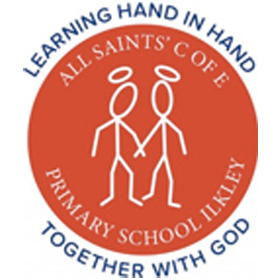Religious Education
At All Saints’ we encourage children to explore the important role that religious and non-religious worldviews play in all communities. We ensure they are confident individuals in their knowledge to respect all beliefs and flourish in a diverse society. We foster a deep understanding and respect of others. We may not share the same beliefs, but we can show respect towards others regardless of this difference. This links directly with one of the core British Values taught in schools: mutual respect for and tolerance of those with different world views and beliefs, and for those without faith.
RE at All Saints’ encompasses all our school values and allows children the opportunity to make connections with real world experiences. We encourage reflection to support children’s understanding of how everyone shares similar values no matter what they believe. Through our discussions, we encourage children to become critical thinkers and explore stimulating key questions to nurture informed and resilient responses that reflect and celebrate all beliefs.
As a Church of England Primary School, we are proud to have strong links with All Saints’ Church who regularly support our RE teaching and join us for celebrations of learning and events throughout the year.
Being part of the wider Bradford Community, helps our children to explore first hand, through visits and workshops, how beliefs and practices are lived out in our society today.
We enrich the curriculum with opportunities to visit places of worship in and around the Bradford district and work closely with faith leaders through the interfaith centre in Bradford.
Through our Linking School Network in Lower Key Stage 2, we offer opportunities to create friendships and understanding of how different school communities live.
What does RE look like at All Saints’?
As part of the Bradford Local Authority (LA), we follow the LA Agreed Syllabus for RE ‘Believing and Belonging’ which has been complemented by the Diocesan approved resource ‘Understanding Christianity.’ The Diocese has advised this, to help enrich the teaching and learning of Christianity throughout school.
Our curriculum design encompasses a spiral approach, so children will revisit key ideas each year to further develop their religious literacy. Children will develop their understanding in three key threads:
- Investigate the beliefs and practices of religions and other world views.
- Investigate how religions and other world views address questions of meaning, purpose and value.
- Investigate how religions and other world views influence morality, identity and diversity.
RE in Early Years Foundation Stage
In line with the Early Learning Goals 2021, we encourage children to develop their knowledge of ‘People, Culture and Communities’. Through this, we expect them to know some similarities and differences between different religions and communities in this country. We discuss their own experience and interests and read stories that develop their curiosity about the communities around them.
Through developing provisions, we ensure that children are immersed in the vocabulary and terminology in the following key questions:
- How do people celebrate autumn festivals?
- Why do Christians perform nativity plays at Christmas?
- Why is the word ‘God’ so important to Christians?
- Why do Christians put a cross in an Easter garden?
- How can we care for our wonderful world?
- Which places are special to us?
RE at Key Stage 1
During Key Stage 1, as part of investigating the beliefs and practices of religions and other world views, children begin to develop their knowledge of Christianity and Islam, alongside understanding of non-religious approaches to life.
Children develop their knowledge and understanding of religions and world views, recognising
local, national and global contexts. They use basic subject specific vocabulary. They are encouraged to raise questions about beliefs and find out about questions of right and wrong and begin to respond with their own views.
RE at Key Stage 2
During Key Stage 2, Children extend their knowledge and understanding of religions, beliefs and values, recognising personal, local, national and global contexts. They are introduced to an extended range of sources and subject specific vocabulary. They are encouraged to be curious and to ask and discuss increasingly challenging questions about beliefs, values and human life, drawing on the insights of religions and other world views. Children respond with their own ideas, identifying relevant information, selecting examples and giving reasons to support their ideas and views.
At Key Stage 2, teaching and learning build on the KS1 focus around Christianity and Islam, and is extended to the study of Judaism and Sikhism, alongside developing understanding of non-religious approaches to life. Aspects of other faiths are often included as appropriate, such as learning about a specific concept, festival or practice.
